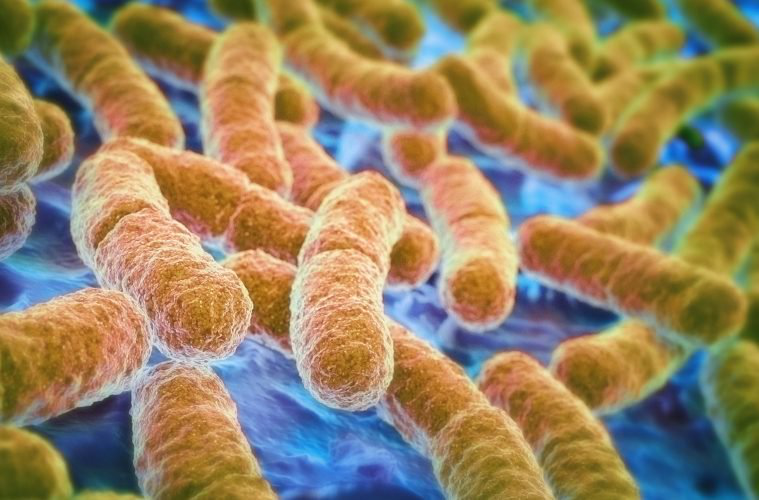The Non-Antibiotic drug that affect gut bacteria
Antibiotics are responsible the growth of bacteria in the human body. Researchers state that almost 40 different bacteria are isolates of the human gut with the treatment of up to 1079 compounds, some strains that observed under the lab culture has 38 healthy individuals found that including Escherichia coli, Bacteroides fragilis, and Clostridium difficile.
Out of the 1079 drugs tested 56 had known antibacterial activity and among that 88 were effective against viruses, fungi, and parasites. Apart from that, the rest were drugs that target human cells rather than microbial cells. These drugs were tested in concentrations within the range of what is estimated to be found in the human gut.
The result showed that at least 78% of the antibacterial species traced the growth of bacterial species, and several were active against multiple species. Most of the antibiotics are used to kill specific pathogenic bacteria inpatient and many antibiotic classes also target normal gut. This is the reason most of the antibiotic treatment frequently causes gastrointestinal problems as it is considered a primary factor in C difficile infection, the most common cause of hospital-associated diarrhea. Although the bacterial species are susceptibility to the drugs varied, the researchers report that the species that are most excess in the gut of healthy individuals were more susceptible, including species like Roseburia intestinalis, Eubacterium rectale, and Bacteroides vulgaris.
The researchers also discovered that certain antibiotic-resistance mechanisms appear to work against non-antibiotics. Observing that there was a strong correlation between the bacteria that were resistant to antibiotics and those that were resistant human-targeted drugs, the researchers experimented with a strain of E coli carrying the antibiotic-resistance gene tolC, which produces a protein that pushes antibiotics and other chemicals out of bacterial cells. They found that E coli that that has trace over the gene were resistant both to antibiotics and six of seven non-antibiotics, while E coli lacking the gene were more sensitive to both.
The findings say that the side effects are linked to several the drugs tested. Non-antibiotics that affect gut microbiomes can be separated from those that don’t depend on their side effects caused in humans. However, the study had several limitations, including that the bacterial species were considered separately, and that generally only one strain was probed per species.

To enhance your research on Medical Microbiology visit http://medicalmicrobiology.alliedacademies.com/
Medical microbiology | medicine | microbiology | Anti biotic | Anti-bacterial | Bacterial | Microbes | drugs
Out of the 1079 drugs tested 56 had known antibacterial activity and among that 88 were effective against viruses, fungi, and parasites. Apart from that, the rest were drugs that target human cells rather than microbial cells. These drugs were tested in concentrations within the range of what is estimated to be found in the human gut.
The result showed that at least 78% of the antibacterial species traced the growth of bacterial species, and several were active against multiple species. Most of the antibiotics are used to kill specific pathogenic bacteria inpatient and many antibiotic classes also target normal gut. This is the reason most of the antibiotic treatment frequently causes gastrointestinal problems as it is considered a primary factor in C difficile infection, the most common cause of hospital-associated diarrhea. Although the bacterial species are susceptibility to the drugs varied, the researchers report that the species that are most excess in the gut of healthy individuals were more susceptible, including species like Roseburia intestinalis, Eubacterium rectale, and Bacteroides vulgaris.
The researchers also discovered that certain antibiotic-resistance mechanisms appear to work against non-antibiotics. Observing that there was a strong correlation between the bacteria that were resistant to antibiotics and those that were resistant human-targeted drugs, the researchers experimented with a strain of E coli carrying the antibiotic-resistance gene tolC, which produces a protein that pushes antibiotics and other chemicals out of bacterial cells. They found that E coli that that has trace over the gene were resistant both to antibiotics and six of seven non-antibiotics, while E coli lacking the gene were more sensitive to both.
The findings say that the side effects are linked to several the drugs tested. Non-antibiotics that affect gut microbiomes can be separated from those that don’t depend on their side effects caused in humans. However, the study had several limitations, including that the bacterial species were considered separately, and that generally only one strain was probed per species.

To enhance your research on Medical Microbiology visit http://medicalmicrobiology.alliedacademies.com/
Medical microbiology | medicine | microbiology | Anti biotic | Anti-bacterial | Bacterial | Microbes | drugs
Comments
Post a Comment